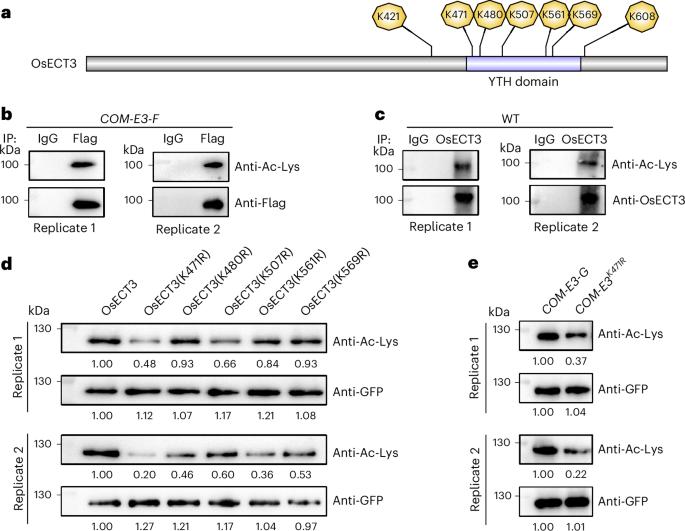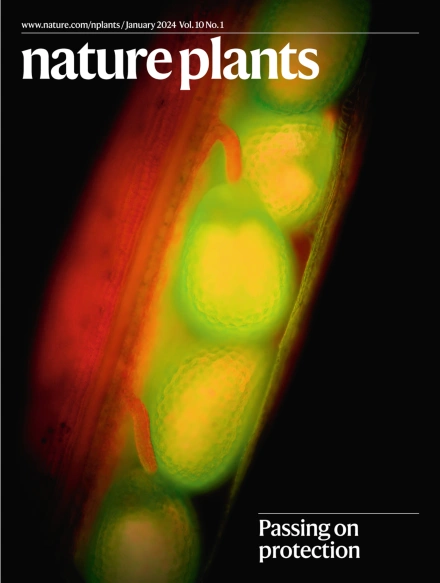Regulation of m6A RNA reader protein OsECT3 activity by lysine acetylation in the cold stress response in rice
IF 13.6
1区 生物学
Q1 PLANT SCIENCES
引用次数: 0
Abstract
N6-Methyladenosine (m6A) reader proteins, which recognize m6A to regulate RNA metabolism, are important for plant adaptation to the changing environment. It remains unknown how the activities of plant m6A reader proteins are regulated in plant responses to stress. Here we show that the rice m6A reader protein EVOLUTIONARILY CONSERVED C-TERMINAL REGION 3 (OsECT3), required for rice tolerance to cold, is post-translationally modified by lysine acetylation, which reduces its m6A-binding activity. Under cold conditions, OsECT3 acetylation is reduced by cold-induced histone deacetylase HDA705 and low ACLA2-sourced acetyl-CoA levels, resulting in an increase in OsECT3 m6A-binding activity, the accumulation of cold-response-related mRNAs and improved tolerance of rice to cold stress. These results unravel a regulatory mechanism of an m6A reader protein to dynamically control m6A RNA levels under stress and suggest a link between lysine acetylation, metabolism and m6A pathways. Ma et al. report a regulatory mechanism by which lysine acetylation of the m6A reader protein OsECT3 modulates its m6A-binding activity under cold stress. The reduced acetylation level stabilizes cold-responsive mRNAs to enhance cold tolerance in rice.


水稻冷胁迫响应中赖氨酸乙酰化对m6A RNA解读蛋白OsECT3活性的调控
n6 -甲基腺苷(m6A)解读蛋白识别m6A调控RNA代谢,对植物适应环境变化具有重要意义。目前尚不清楚植物m6A解读蛋白的活性是如何在植物对逆境的反应中被调节的。在这里,我们发现水稻m6A读取器蛋白进化上保守的c -末端3区(OsECT3)是水稻耐冷所必需的,在翻译后被赖氨酸乙酰化修饰,从而降低了其m6A结合活性。在寒冷条件下,低温诱导的组蛋白去乙酰化酶HDA705和低acla2来源的乙酰辅酶a水平降低了OsECT3乙酰化,导致OsECT3 m6a结合活性增加,冷响应相关mrna积累,提高了水稻对冷胁迫的耐受性。这些结果揭示了m6A解读蛋白在应激条件下动态控制m6A RNA水平的调控机制,并表明赖氨酸乙酰化、代谢和m6A途径之间存在联系。
本文章由计算机程序翻译,如有差异,请以英文原文为准。
求助全文
约1分钟内获得全文
求助全文
来源期刊

Nature Plants
PLANT SCIENCES-
CiteScore
25.30
自引率
2.20%
发文量
196
期刊介绍:
Nature Plants is an online-only, monthly journal publishing the best research on plants — from their evolution, development, metabolism and environmental interactions to their societal significance.
 求助内容:
求助内容: 应助结果提醒方式:
应助结果提醒方式:


